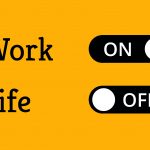
Can you get the connection between all of the following; Supergrass, Radiohead, Ride, Lewis Carroll. J.R.R. Tolkein, Bill Clinton, Chelsea Clinton, Margaret Thatcher, Ed Milliband, Iris Murdoch, Camilla Long? All either hail from Oxford or were educated there.
You can add to that list a superb but little known reggae band called Makating plus my life-long friends Stuart and Steve. If you’re feeling particularly generous you can add me to the list as I spent most of my childhood in the area*. Oh, and let’s not miss the Turf Tavern pub off the list. It’s probably the only pub in the world that can sell 15 crates of Pimms in one day (Oxford is a Pimms kinda place).
The latest thing to come out from Oxford, however, is a very interesting piece of research into fatherhood. It’s been led by Dr Anna Machin, Oxford University’s Department of Experimental Psychology.
The study followed 15 first time fathers from two months before the child(ren)’s birth until six months afterwards. All the men had high hopes of being very involved dads but the reality was somewhat different. The research revealed various recurring themes. These included;
- Difficulties balancing the desire to be an involved father with work commitments, especially while the mother was on maternity leave (shared parental leave as it would be now)
- Guilt over balancing work commitments and the pressures of fatherhood
- Concerns over future career progression
- The nature of their bond with the child
- Being unable to afford to take anything more than the statutory paid two week paternity leave and
- Finally and probably most significantly, feeling under supported by health staff.
To me the most interesting part of the research is related to that last bullet point and concerns the mental health of the men involved. Of the 15, five were showing signs of mild to moderate depression two weeks after the birth and one was showing signs of “moderately severe” depression after six months. This also coincided with the men reporting the lowest levels of support from health workers.
We all know about post-natal depression in women. It’s a huge issue and one that, quite rightly, gets a lot of attention (although I’d question whether it gets enough). As a society, ‘though, how often do we consider the mental health of new fathers?
It’s a massive change for the entire family. I remember when my first child was born saying it was like “being physically and emotionally hit by a truck”. Yes, okay, very dramatic and pretentious language but I stand by the final part of that sentence.
When I returned to work after the birth of my eldest, I felt miserable. I wouldn’t say I was depressed, but having spent a month at home (I topped up my paternity leave with two weeks holiday) I felt awful.
I don’t ever recall being asked by health professionals, friends or family how I felt. Second time around I was an experienced father and it wasn’t quite such a big deal.
Even so, my wife was re-admitted to hospital a few days later with possible eclampsia. For several days I had to run the household, look after Child No1 and spend every possible moment in hospital because my wife was on the maternity ward (in a hospital in the midst of a norovirus outbreak). The stress levels were immense. Emotionally my wife was in a dreadful state because she just wanted to be at home with her kids and husband.
I’m thick skinned and I coped with the help of in-laws. I can imagine how that stressful scenario could have led to a less confident individual becoming depressed or questioning their own abilities. This time around my mother could see I was struggling but she was the only one to show any real interest in my situation. There was certainly no support or enquiries after my well-being from any health professionals.
The good news is that Dr Machin and her team plan to carry out a much wider piece of research. Dr Machin herself has said:
“Research shows that if fathers are involved with their children, taking the time to support and affectionately care for their child, their children are not only happier but their physical and behavioural development benefits too.”
I shall await the outcome of Dr Machin’s further research with interest. In the meantime, next time you stumble across a new father, ask how he’s doing. He’ll appreciate your interest.
* While mentioning all things Oxford-related, the city is home to the Oxford Network of European Fatherhood Researchers, or ONEFaR (#ONEFaR if you wish to do a search on social media). It was was convened by Prof Tina Miller of Oxford Brookes University and I spoke at one of its events towards the end of last year. In other words, a lot of dad stuff is going on in the city.
Image reproduced under Creative Comons Agreement. For more information about Creative Commons, please see my Disclosure page.







23 thoughts on “Should we do more to consider the mental health of new fathers?”
I think the pressure that men are under in the modern world is highly under estimated, as a sex we are all too often expected to be the bread winner and main earner (with societal pressure to be the bigger earner over our partners still very much in force), an involved father, a lover, an ear for our partners and co-home maker, yet the support out there for men, although growing, is still way behind that of the opposite sex.
Add to this the fact that while we can try to bond with our children pre birth, NOT being the person carrying the child within makes this a very much more difficult bonding process, often the first time we truly feel bonded is when we get to hold the little bundle of joy (and sometimes not until later, if at all), I think this often puts us nine months behind mothers, so if you imagine they struggle why would we men be any different?
You make many valid points. Men are under huge pressure and this rarely gets recognition. It’s no surprise at all that some men can’t cope and they need support.
Great post John!
I quite agree, a lot more needs to be done to raise awareness in mental health across the board, but especially in men’s health. New fathers are more likely to suffer the younger they are, and whether their partners are suffering as well, as I discovered last week in my posts for MHAW.
Also looking forward to reading the follow up studies.
I look forward to the follow up research too. You’re absolutely right though, men’s health ingeneral seems to take a back seat, especially mental health.
Well done on this John, we all need to do more to highlight and raise awareness of mental health..in 2013 78% of all suicides were by men. 6233 men.
It’s one of the reasons we’ve launched our own, free counselling service.
Good work on organising uyour own counselling service. It is clearly very much needed.
This is such a true article. There is so much awareness about post-natal for the mothers but there needs to be more awareness about how fathers cope (or don’t cope).
Thanks Carly, yes dadds seem to get oeverlooked in the melee of the chuild’s arrival. Both parents should be supported.
I read the title of this post and thought ‘absolutely!’
I believe mental wellness in men is and has been traditionally overlooked by society. Your guys. Your tough, you can handle it. Yet at the same time we complain you aren’t sensitive or nurturing enough.
It is a horrible double standard that definitely needs to be addressed!
It is a double standard CHristina. In fact a guy commented onmy G+ page some of the comments he had totolerate when he wrote a blog post about missing his kid when he returned to work after paternity leave. It’s really not funny and an issue that should be addressed.
This is such a great post.
There definitely needs to be more awareness about this.
I had post-natal depression myself & I am convinced my partner did too.
It doesn’t help that he works long hours in his job & has aspergers so finds it hard to adjust to changes anyway.
But losing your partner to a new baby, coping with being the breadwinner, dealing with the sleepless nights & all the changes a new baby brings with it is definitely tough.
I am astounded at how well my other half coped with everything that was thrown on him when we had Evie. I know he found it so tough to adjust & it brought out a really deep emotional side to him that i’ve never seen before.
Some men try so hard on the exterior to appear to cope. But I think that there definitely needs to be more people checking in on them after a baby, as well as the new mum. x
Thanks Chloe, I think many men do get an equivalent of PND, simply because life changes so much. Add to that the fact thereis no support for them and they suffer in silence. Such an important issue.
Very interesting & thought provoking piece. Not only is the mental health of new fathers less considered & less supported, it is also less talked about. I’m sure there are other examples around, but this is the first blog post I have seen on this issue, compared to the many (equally worthwhile & important, of course) dealing with depression in new mothers.
I wouldn’t question the importance of providing services for mothers. It’s vital. Where, however, is the support for guys? It doesn’t seem to be in place at all.
I’d never really considered it before but you’re absolutely right. I don’t recall ever being asked once by a health professional how I was doing. Now we were lucky that my wife had three relatively straightforward births and came through each of them well emotionally. But I do remember the return to work after my paternity leave being a bit of a struggle and an adjustment, especially first time around.
It’s a really interesting issue and one I’m glad is being highlighted by this new work. Thanks for raising it further!
(Incidentally, I didn’t know you lived in Oxford. I was there on and off for 12 years at uni and afterwards – it’s where my wife and I met – and spent many a happy afternoon/evening in the Turf. And the Eagle & Child. And the Lamb & Flag. And the White Horse. And a number of others. Hic.)
It’s an issue that desperately needs highlighting. It’s very important.
You know, the only one of those pubs I haven’t been to is the White Horse. We can reminsice at BritMums Live.
I think it is so brave and honest of you to publish this post! I had never thought of the impact becoming a parent has on dads, but reading this has made me realise dads need to be supported by professionals just as much as us mummies. Thank you for linking up to #MMWBH 🙂
Thanks Rebecca. I think it was ap ost that needed writing. I’m glad to say it got a great response.
Pingback: ‘Pioneering Stories About Men and Boys’ book launch | Dad Blog UK'Pioneering Stories About Men and Boys' book launch - Dad Blog UK
Pingback: The insideman book launch debate: 'A conversation that needs to happen' - insideMANinsideMAN
Brilliant points John and I’ve bookmarked that research for another time. From my/our point of view, my husband was faced with the very real prospect of losing us both and was ‘put’ in a room full of posters offering support for women… and one on breastfeeding. He was feeling desperate and all the other emotions that went with the situation and thinking he might not have an option but to bottle feed in any case. So no support for my hubby either… disgraceful. No 6 week post-natal survey for him…
John I completely agree with this – we must reduce the stigma around mental health issues for both men and women. When I was diagnosed with PND it wasn’t just my world that changed but my husband’s too. The stress of coping with a mental health issue affects those around us even if we can’t see it at the time in the midst of the fog. Thank you for linking this up at bit.ly/shareyourpnd to help raise awareness that everyone’s experience of PND is different, all are valid, and that Dads suffer too.
Pingback: Movember; making a difference to men's mental health - Dad Blog UK